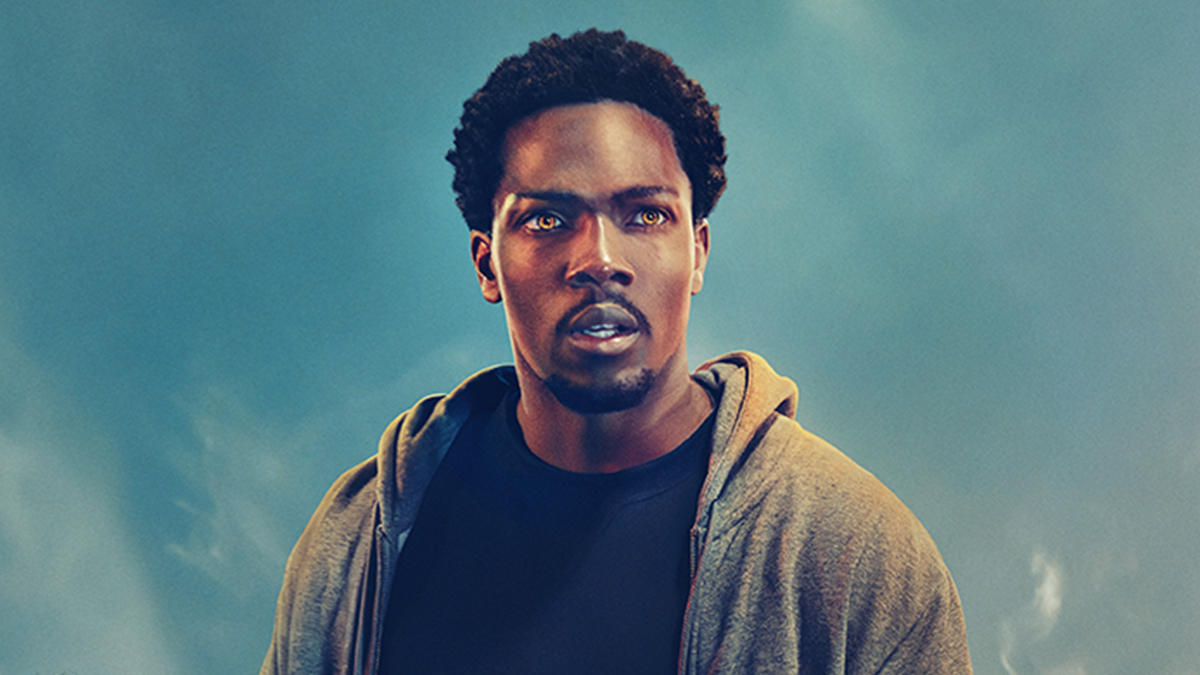
This spoiler-free review is based on all six episodes.
Movie superheroes are intrinsically tied to comic books. The language, the shape of the narrative arcs and the visuals are nearly always either inspired by or reacting against the genre as established in four colours. Even supposedly grounded and gritty takes like M Night Shyamalan’s Unbreakable use Bruce Willis’s poncho to signify a cape, with every shot framed to look like a comic book panel.
The most faithful screen realization of that imagery is usually the lavish CGI cinema spectacle, with TV all too often seen as its poor relation. The truth is, TV superheroism is now a genre all of its own, with its own tropes, rules and language that have for the most part left the comics far behind.
Netflix’s Supacell, written and directed by rapper, record producer and director, Rapman is best seen within the context of that TV superhero genre and lineage. The six-episode show revolves around the lives of five individuals who spontaneously begin exhibiting superpowers – incredible strength, incredible speed, teleportation, invisibility… all the classics are represented. Where it differs from other superhero narratives is that all the people who get these powers live in South London, and are Black.
Its closest relations are not the Avengers, or even the Arrow-verse spandex crowd, but shows like The Umbrella Academy (which has an identity all of its own, distinct from the comics that inspired it), Misfits, Heroes, The 4400 and even The Tomorrow People.
First, this is a spandex-free zone – “no flights, no tights” as the creators of Smallville put it. Secondly, powers are to be used sparingly – we’re on a TV budget after all. Thirdly, the emphasis is rarely, if ever on fighting crime. Because if you got superpowers in the real world, how many of us would actually become costumed vigilantes?
The stories in Supacell are far more relatable – Rodney (Calvin Demba) the speedster, uses his money to become the fastest weed dealer in South London, Sabrina (Nadine Mills), uses her powers to look after her sister on a night out, and Andrew (Eric Kofi-Abrefa) finds his super strength completely useless for keeping a job or connecting with his son.
Often with this sort of show, these plot strands can feel like wheel-spinning, playing for time while the audience impatiently waits for the real plotline to begin, but Supacell’s stories are engaging enough that we are happy for the action-packed future to linger in the background.
A lot of this is sold by the writing, which gives us lived-in characters and a living and breathing picture of South London that just happens to have superpowers in it. The actors also do a great job of bringing it to life, with Tosin Cole (Michael) clearly enjoying the chance to show off what he can do after his stint in the TARDIS. The series is directed and performed as a realistic working-class urban drama and is able to step seamlessly from that into the fantastic elements of the story without the transition feeling jarring.
Often, these series will take a group of people with a grab bag of powers, and then send each of them off on their own plot strands across several episodes before bringing them all together for the finale, and Supacell adheres faithfully to that formula.
Supacell also features a much more specific trope that’s been seen in Misfits, Heroes and The Umbrella Academy. At the beginning of the series, when the characters’ powers are weak or unreliable or the character barely even understands what they are, they will be given a glimpse of the future. In this future, that character has a black outfit, and maybe different facial hair or a cool scar, and if the budget can cover it (as it does with Supacell) we also get to see the whole cast together going full MCU climactic battle scene as the well-oiled, fully-realised superhero team they are destined to become.
It is a trope that can feel like a cheap bait and switch. “Look!” the show says. “This show is the origin story of a badass superhero team! Look how cool it’ll be once it really gets going!” But even in the best examples of the genre, the show never quite rises to that promised level. Whether or not the audience feels cheated by that depends on what you switch it with. For Supacell that switch is between “Superhero Origin Story” and “What Would You Do If You Had Superpowers?”
The need to keep The Superhero Plot in the background until the grand finale does sometimes lead to frustrations. There are a few places, not many, but enough to be annoying, where the storyline hinges on people not telling one another vital plot information that they have no real reason to conceal.
It also means that the Men In Black-esque villains of the series are primarily restricted to looking at the protagonists through monitors and speaking ominously, like 1970s Doctor Who baddies. That said, while they are kept generally mysterious, they also don’t need a huge amount of explanation. If a bunch of working-class Black people suddenly got superpowers, of course there would immediately be a bunch of white people in suits looking to control and imprison them.
But the mysterious shadowy organization is never the main draw in this series. What keeps you coming back is the lives of the protagonists, and how superpowers unfailingly mess them up.
Supacell arrives on Netflix on Thu June 27.
Learn more about Den of Geek’s review process and why you can trust our recommendations here.
The post Supacell Review: Black British Sci-Fi Would Captivate Even Without the Superpowers appeared first on Den of Geek.












